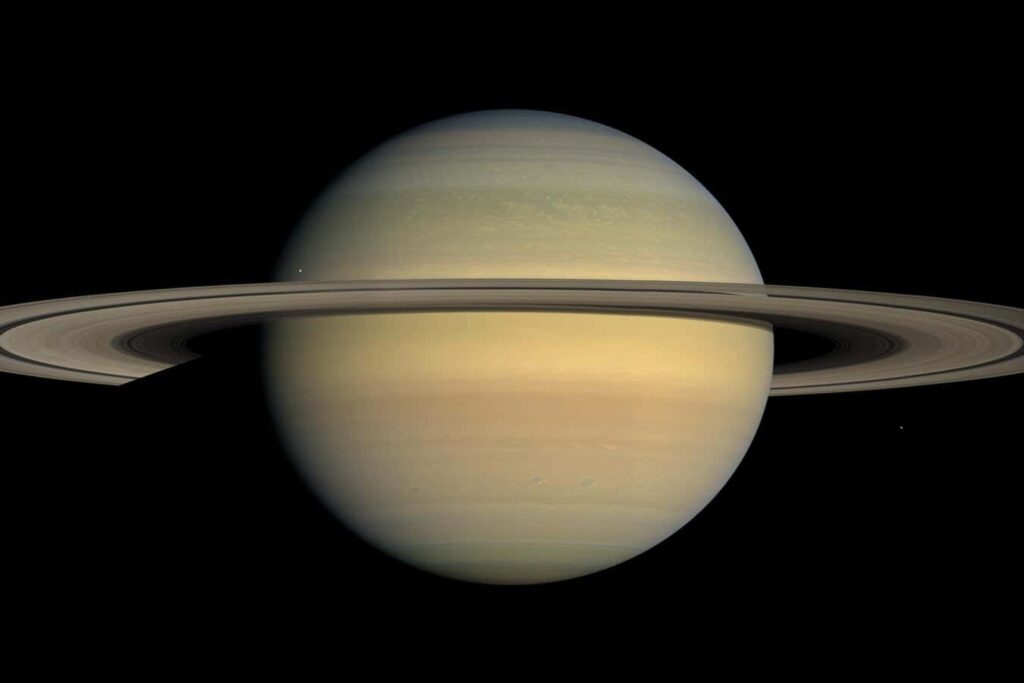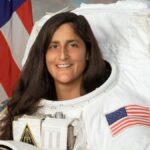
Saturn now has a total of 274 moons
NASA/JPL/Space Science Institute
A Further 128 moons have been discovered orbiting saturn, brings the planet's total to 274 – more than there are arrows all the other planets in our solar system combined. But as advances in telescope technology allows us to spot Progressively Smaller Planetary Objects, Astronomers Face A Problem: How Tiny Can A Moon Before It Is Just a Rock?
Edward ashton At academia sinica in taipei, taiiwan, and his colleagues found the new moons with the canada-france-france-hawaii telescope, revealing dozens that have previouss They took hours of images of saturn, adjusted them for the planet's movement through the sky and stacked them on top of Each Other to Reveal Objects that Would OtherWise Bee Too Dim to SEE.
All the new moons are between 2 and 4 kilometres in diameter and are likely to have ben formed Hindreds of Millions or even billions of years ago in collisions between larger moons, says asshton.
“These are small little rocks floating in space, so some people might not find itd it quite an achievement,” Says Ashton. “But I think it's important to have a catalogue of all the objects in the solar system.”

The dot at the center of this image is one of the new “fuzzy blob” moons of saturn
Edward ashton et al. (2025)
Despite the wealth of data gathered by his team, these latest moons still only appear as “Fuzzy Blobs”, Says Ashton. There are more powerful telescopes that could potentially resolve the mooms in more detail, Although Many Have Smaller Fields of View, which would mean taking many more images, he says.
The newly discovered moons have been recognized by the International Astronomical Union (IAU), and Ashton and his team will now get the right to name them. Ashton, Who is Canadian, Says He Has Approached a REPROSENATIVE from Canada's indigenous people for suggestions, but is also mulling the idea of some kind of public naming constituency.
Cold there be more moons out there? Scientists have spent decades scanning the area around Saturn with Increasingly Powerful Telescopes, which has paid off in recent years. In 2019, 20 new moons was found, and ashton and his colleagues had alredy Discovered 62 in 2023, Separate from the 128 they mostly found. Ultimately, it is likely that further discoveries will require advanes in telescope technology, says ashton, who believes there easily all thighs of moons in orbit arith saturning, ever The Smaller, Rocky Debris Found in the Planet's Rings.
Mike Alexandersen At the Minor Planet Center, which logs planetary bodies for the IAU, say there are likely to be many to be many more moons cous on be found in our solar system as improvesments to telescopes allowed to soe Same to SEE SAMALLER OBJALLELE He Says Decisions will have to be made about what does and doesn't count as a moon.
“I do know that the IAU decides that, due to the number of moons that are likely to exist, they're not going to prioritise naming naming anything that ’s smaller than 1 kilometer. But that's not the same as them not recognizing it as a moon, “Says alexandersen. “They'll probally only name it if a spacecraft goes to visit it.”
He suggested that the cutoff between what is a moon and what is just a Rock particle that makes up part of a planetary ring is probally going to be used to be “In the end, it probally won't be my decision, it'll be the IAU, which will make up some some cutoff which will be more or less controversial – just like the cut for what for whatset or note. And it's most likely going to be relatively arbitrary, “Says Alexandersen.
Elizabeth day At Imperial College London Says That, One Day, There May even be Commercial Reasons for Having Accure Maps of the Solar System. ,We might want to extract resources from asteroids and moons in the solar system, so having a great understanding of what is where is important for that, “Says Day.
Topics:



